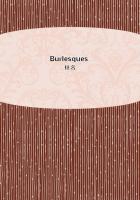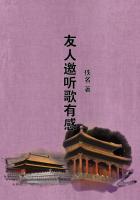His wand and holy words, the viper's rage, And venom'd wounds of serpents could assuage.
He, when he pleas'd with powerful juice to steep Their temples, shut their eyes in pleasing sleep.
But vain were Marsian herbs, and magic art, To cure the wound giv'n by the Dardan dart:
Yet his untimely fate th' Angitian woods In sighs remurmur'd to the Fucine floods.
The son of fam'd Hippolytus was there, Fam'd as his sire, and, as his mother, fair;Whom in Egerian groves Aricia bore, And nurs'd his youth along the marshy shore, Where great Diana's peaceful altars flame, In fruitful fields; and Virbius was his name.
Hippolytus, as old records have said, Was by his stepdam sought to share her bed;But, when no female arts his mind could move, She turn'd to furious hate her impious love.
Torn by wild horses on the sandy shore, Another's crimes th' unhappy hunter bore, Glutting his father's eyes with guiltless gore.
But chaste Diana, who his death deplor'd, With Aesculapian herbs his life restor'd.
Then Jove, who saw from high, with just disdain, The dead inspir'd with vital breath again, Struck to the center, with his flaming dart, Th' unhappy founder of the godlike art.
But Trivia kept in secret shades alone Her care, Hippolytus, to fate unknown;And call'd him Virbius in th' Egerian grove, Where then he liv'd obscure, but safe from Jove.
For this, from Trivia's temple and her wood Are coursers driv'n, who shed their master's blood, Affrighted by the monsters of the flood.
His son, the second Virbius, yet retain'd His father's art, and warrior steeds he rein'd.
Amid the troops, and like the leading god, High o'er the rest in arms the graceful Turnus rode:
A triple of plumes his crest adorn'd, On which with belching flames Chimaera burn'd:
The more the kindled combat rises high'r, The more with fury burns the blazing fire.
Fair Io grac'd his shield; but Io now With horns exalted stands, and seems to low-A noble charge! Her keeper by her side, To watch her walks, his hundred eyes applied;And on the brims her sire, the wat'ry god, Roll'd from a silver urn his crystal flood.
A cloud of foot succeeds, and fills the fields With swords, and pointed spears, and clatt'ring shields;Of Argives, and of old Sicanian bands, And those who plow the rich Rutulian lands;Auruncan youth, and those Sacrana yields, And the proud Labicans, with painted shields, And those who near Numician streams reside, And those whom Tiber's holy forests hide, Or Circe's hills from the main land divide;Where Ufens glides along the lowly lands, Or the black water of Pomptina stands.
Last, from the Volscians fair Camilla came, And led her warlike troops, a warrior dame;Unbred to spinning, in the loom unskill'd, She chose the nobler Pallas of the field.
Mix'd with the first, the fierce virago fought, Sustain'd the toils of arms, the danger sought, Outstripp'd the winds in speed upon the plain, Flew o'er the fields, nor hurt the bearded grain:
She swept the seas, and, as she skimm'd along, Her flying feet unbath'd on billows hung.
Men, boys, and women, stupid with surprise, Where'er she passes, fix their wond'ring eyes:
Longing they look, and, gaping at the sight, Devour her o'er and o'er with vast delight;Her purple habit sits with such a grace On her smooth shoulders, and so suits her face;Her head with ringlets of her hair is crown'd, And in a golden caul the curls are bound.
She shakes her myrtle jav'lin; and, behind, Her Lycian quiver dances in the wind.















